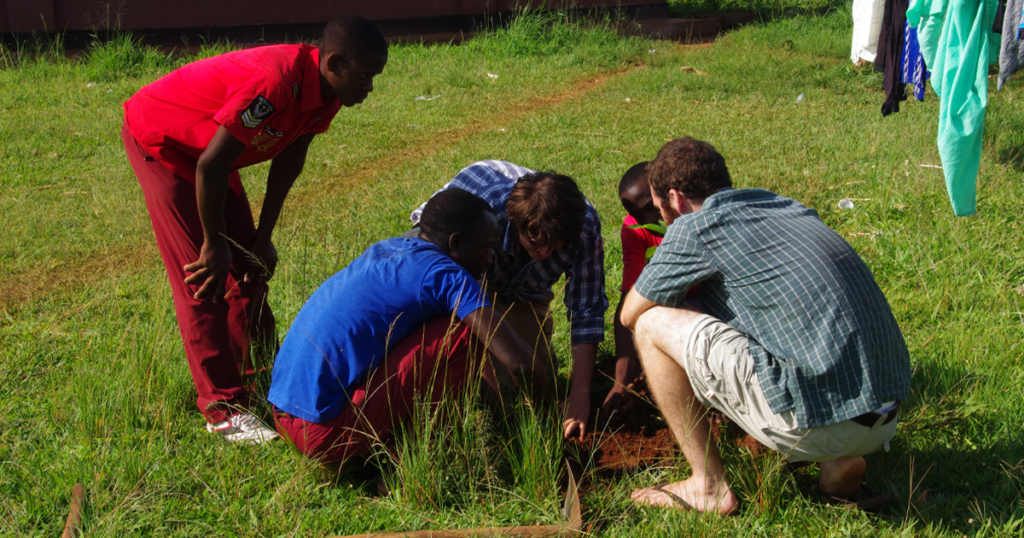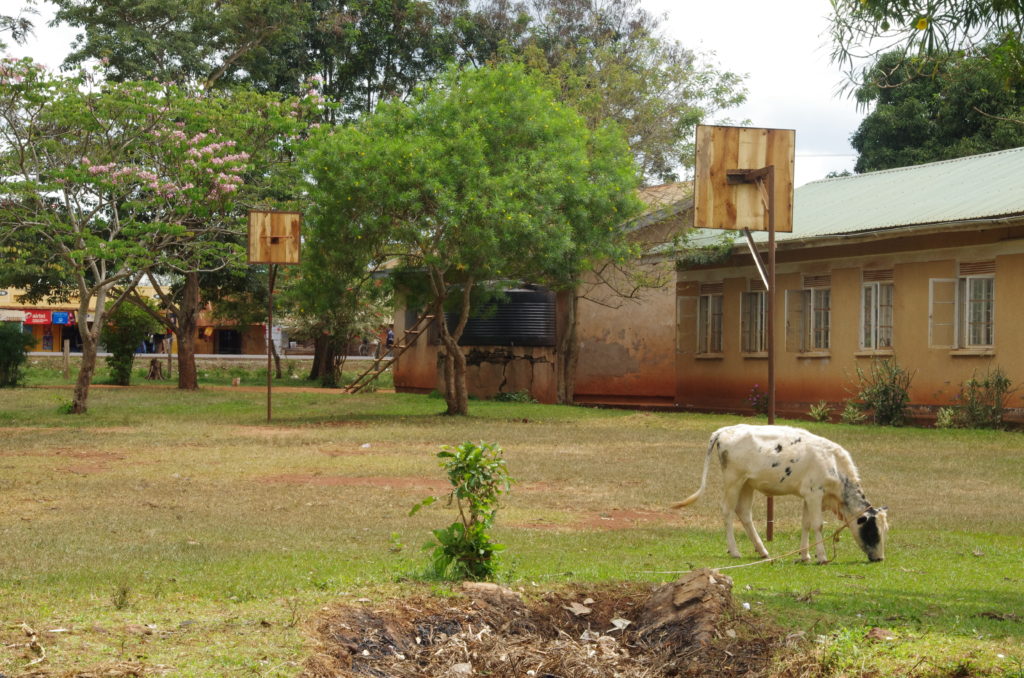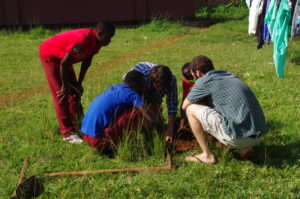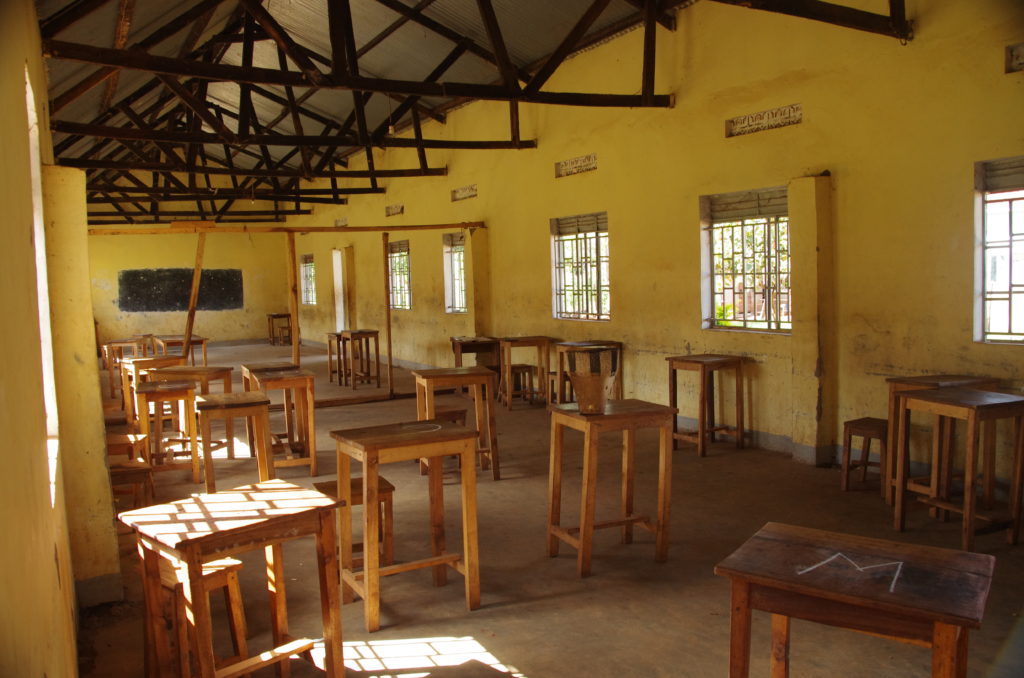
The Parable of the Mustard Seed Means Something to Me
By GO HumanityIn 2018, Rogers Muwanguzi co-founded Eagle’s View Primary School in Kayiira, Uganda to address the high rates of teen pregnancy, child labor, and school dropouts caused in large part by the absence of any sufficiently nearby school. I only know this because Rogers Muwanguzi was a student at Mustard Seed Secondary School in Busota, Uganda when the other Pathfinders and I volunteered there in 2013. Rogers and I have kept in touch since then, which is how I was recently in position to help Eagle’s View Primary School raise funds online to purchase their own land.

Photo: Wendy Webber
After two years of rising attendance at Eagle’s View Primary School and positive impact in the community, one of the parents offered to sell the school two acres of land directly across the road from where they are currently renting classrooms. Fittingly, since it was only because of FBB that I met Rogers in the first place, FBB stepped in to serve as fiscal sponsor for the employer-matched contribution that helped Eagle’s View Primary School surpass its fundraising target for the land. Now that the land is covered, we have set a stretch goal to continue raising funds to help with the construction of the school facilities.
When the other Pathfinders and I volunteered at Mustard Seed Secondary School in 2013, I found the name of our volunteering location aptly ironic. Or perhaps, ironically apt. You decide:
Our visit was coordinated through the Uganda Humanist Schools Trust as part of Pathfinders Project, a yearlong global service and research trip sponsored by Foundation Beyond Belief. Through Pathfinders Project, we contributed more than 6,000 hours of service and $50,000 to grassroots clean water, education, human rights, and environmental conservation organizations as we scouted potential locations and partners for the launch of the Humanist Service Corps (now Humanist Action: Ghana).

Photo: Wendy Webber
Meanwhile, the school we were visiting for our third project was named for the mustard seed parable/symbol of Christian faith. The purpose of Pathfinders Project was never to provide support exclusively to humanists, of course, but rather to explore how the values of humanism should be embodied in service. You could say that planting the seeds of relationships was precisely what we godless pilgrims felt we were there to do. Through collaboration on projects of interest to the school and its students, we hoped to create — as I once said in a blog post for FBB —“opportunit[ies] to break through strong cultural, linguistic, and religious barriers and forge lifelong connections with the people we met.”
It did not matter that the teachers and students at Mustard Seed Secondary School were not humanists, or, indeed, that they did not know what “humanism” meant, though they attended an ostensibly humanist school. Our purpose was to co-create an understanding of humanism that required no label or definition because it had been experienced, and we knew that, in the process of cultivating those experiences, we would also be deepening our own values and self-understanding.
I always knew Pathfinders Project would have the greatest positive impact on the Pathfinders themselves, but I only envisioned that impact in the moment. Seven years later, I am still made better by the people I met during Pathfinders Project. My humanism is still informed by people like Rogers Muwanguzi, who helped me realize that the seeds I planted in Uganda are carried with me.

Photo: Wendy Webber
